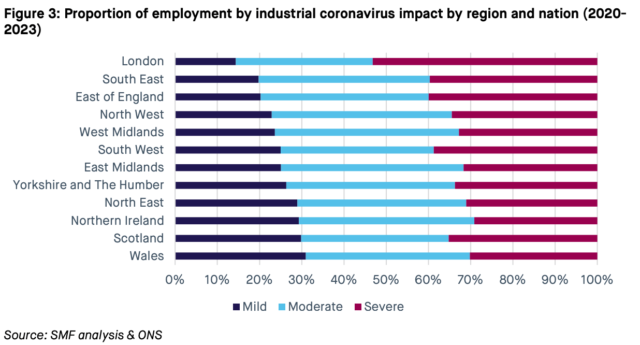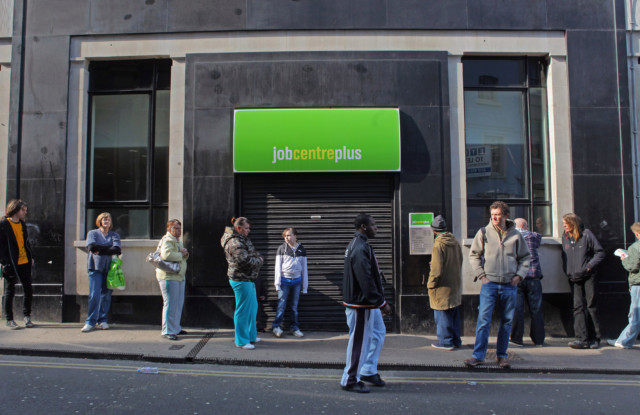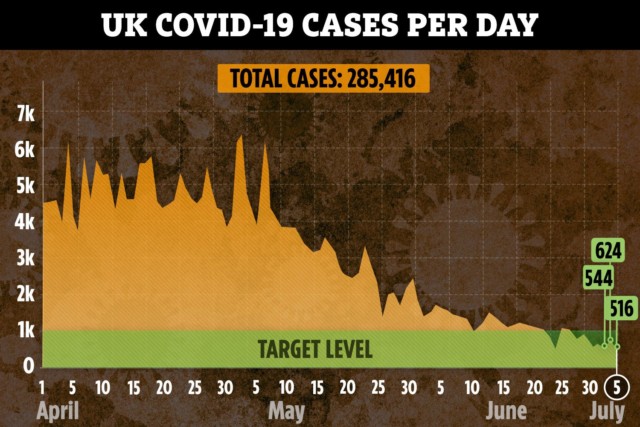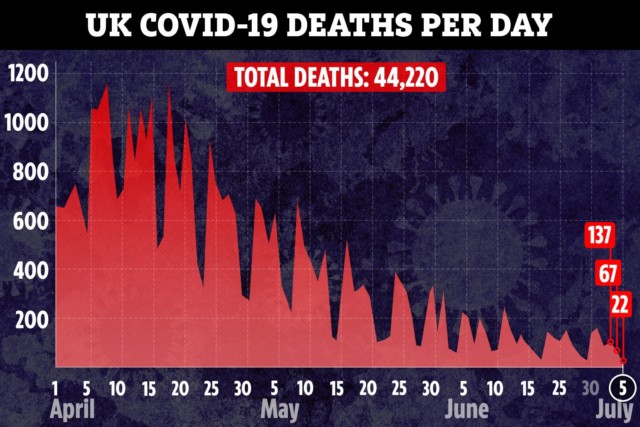NORTHERN cities and towns are facing the slowest economic recovery from the coronavirus crisis, while hard hit areas of London will bounce back as the country is released from lockdown.
A new report by think tank Social Market Foundation has revealed the parts of Britain the PM vowed to “level up” during the election – such as Hull, Bradford and Manchester – will struggle to catch up.
The City of London and other parts of the capital saw the worst shock from the economic shutdown but unequal financial hardship across the country will become more entrenched as the economy begins to reopen.
The report looked at the recovery after the global financial crisis and pre-existing unemployment rates in areas as well as overall job losses.
So while areas in London, such as Kensington & Chelsea, Hammersmith & Fulham and Lambeth bore the brunt of the shock from the lockdown – and the most job losses, there will be able to be a much faster recovery as those businesses reopen.
But for areas which already struggled with unemployment and lack of investment – such as Hull – the long-term scarring to the local economy will be severe.
Researcher at SMF Amy Norman said: “The economic severity of coronavirus will be felt across many places, but we must remember that this recession does not occur in isolation.
“Many people and places outside of the capital will be particularly vulnerable due to the lasting hardships of the past decade.”

Unemployment in Kingston upon Hull was already at 7.6 per cent, prior to the coronavirus crisis – twice the national average.
Three quarters of the city’s workers are employed by severely impacted industries such as manufacturing – roughly 21,000 people.
It took seven years for Hull to recover from record high unemployment in 2012, following the financial crash of 2008.
That’s in comparison to Lambeth, in London, who hit a peak of 12 per cent unemployment in the area in 2011, but were able to claw back to pre-2008 levels by 2013
The report said: “After the financial crisis, London recovered quickly because of a concentration of jobs in banking and insurance.
“Whilst these jobs will face the biggest initial blow from coronavirus, evidence suggests the capital is more economically resilient and the labour market will recover quicker than the rest of the country.
“As the Government tries to get its economic agenda back on track, it needs to be aware of those areas with multiple moderate or severe impact industries which could equate to a spike in localised job losses.
“This will be compounded if these areas had high pre-crisis rates of unemployment”.










